Agriculture & Environment
Kabale District Local Government Officials Sensitized on Conservation of Forests & Biodiversity
Published
3 years agoon
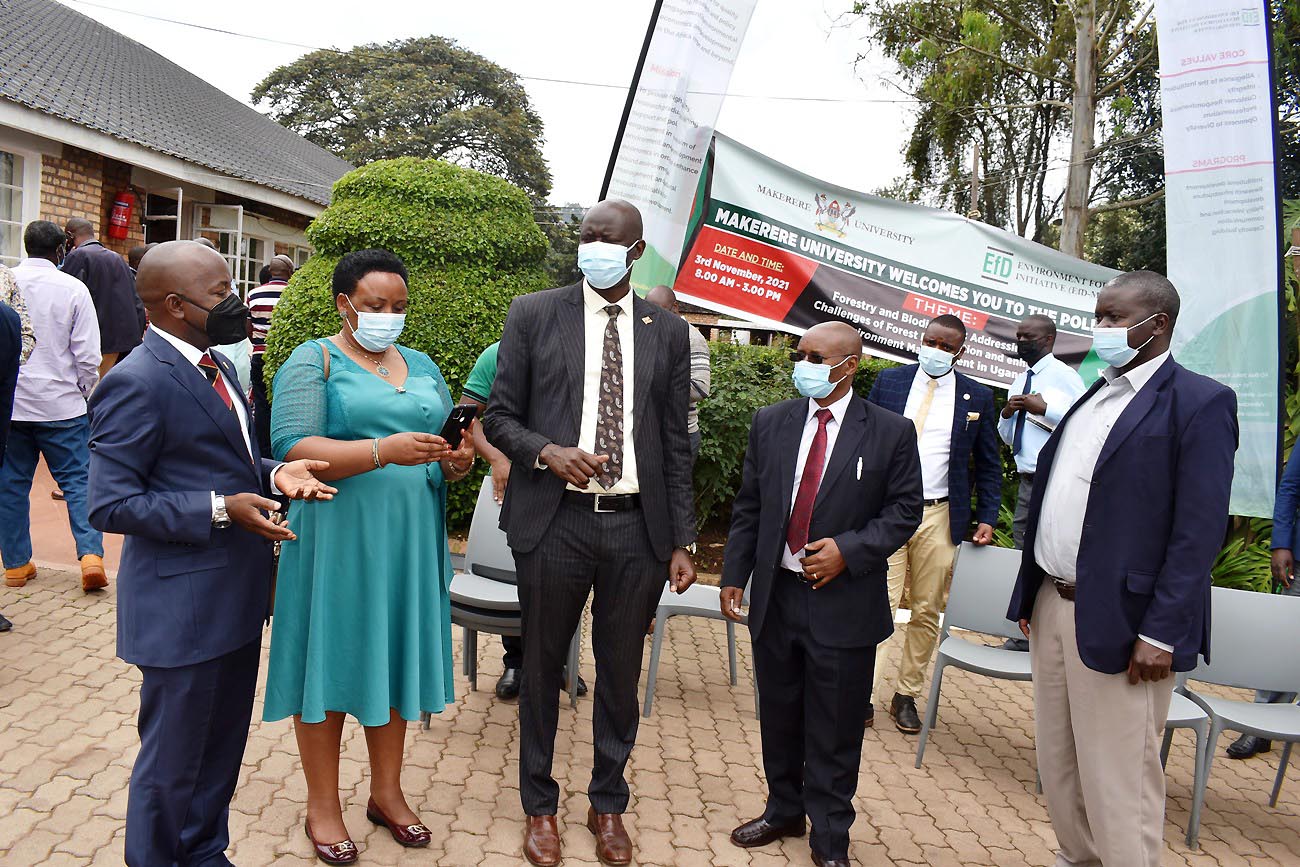
By Jane Anyango
Over 50 officials from Kabale District Local Government have been sensitized on the need to protect the environment for sustainable livelihoods and the future generations.
The policy dialogue under the theme, “Forestry and Biodiversity: Addressing the challenges of Forest Degradation and enhancing Environment Management in Uganda”, was organized by the EfD-Mak Centre Uganda on 3rd November, 2021 at White Horse Hotel in Kabale District.
The meeting attracted participants ranging from Government Ministries and Agencies, NGOs, the private sector, politicians, Environmental police, civil society organizations and members of the Academia from Kabale and Makerere University.
The function was officially opened by the Kabale District Chairman (LCV) Nelson Nshangabasheija and also attended by the Vice Chairperson Miria Ankankwasa, the Chief Administrative Officer and Clerk to Council Gordon Manzi. The function was also graced by the District Forestry Officer Benjamin Ariyo and the Crime Intelligence Officer for Environmental Police Protection Unit Sam Kyomukama.
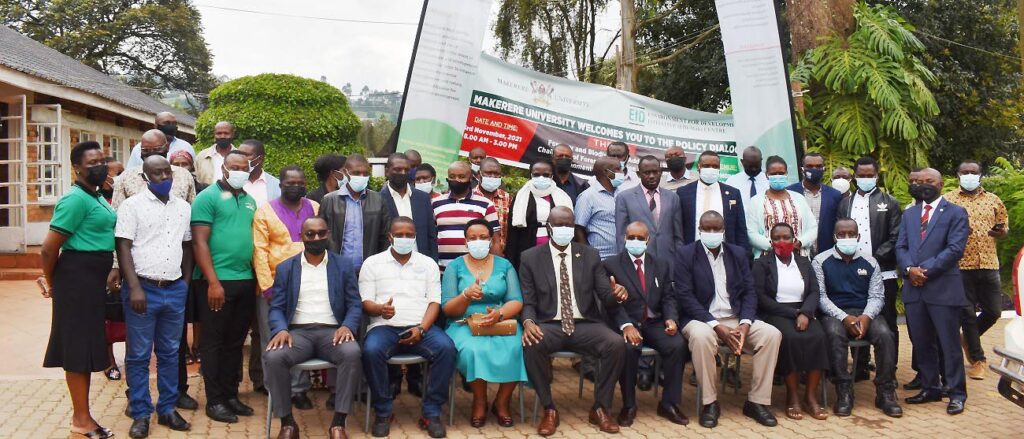
The Deputy Director EfD-Mak Center Prof. Johnny Mugisha in his submission said that they have been conducting policy dialogues across the country and Kabale is one of the areas requiring awakening in as far as policy management and implementation of environmental issues is concerned.
“Kabale is unique from most of other parts of the country because of its landscape. It is characterized by high population mostly residing on steep slopes which must feed. There has been a compromise between environmental conservation and agricultural production to an extent that because food takes priority number one for a household, most of the environment has been encroached on including the fragile ecosystems.
The steep slopes result into landslides and flooding in the bottom valleys and therefore, we found it prudent to come to Kabale and interact with different stakeholders including policy makers, district leaders, those practicing conservation of the environment like tree planters, such that we remind them on the benefits of the environment, its conservation and what we gain when we conserve it”, Prof. Mugisha explained.
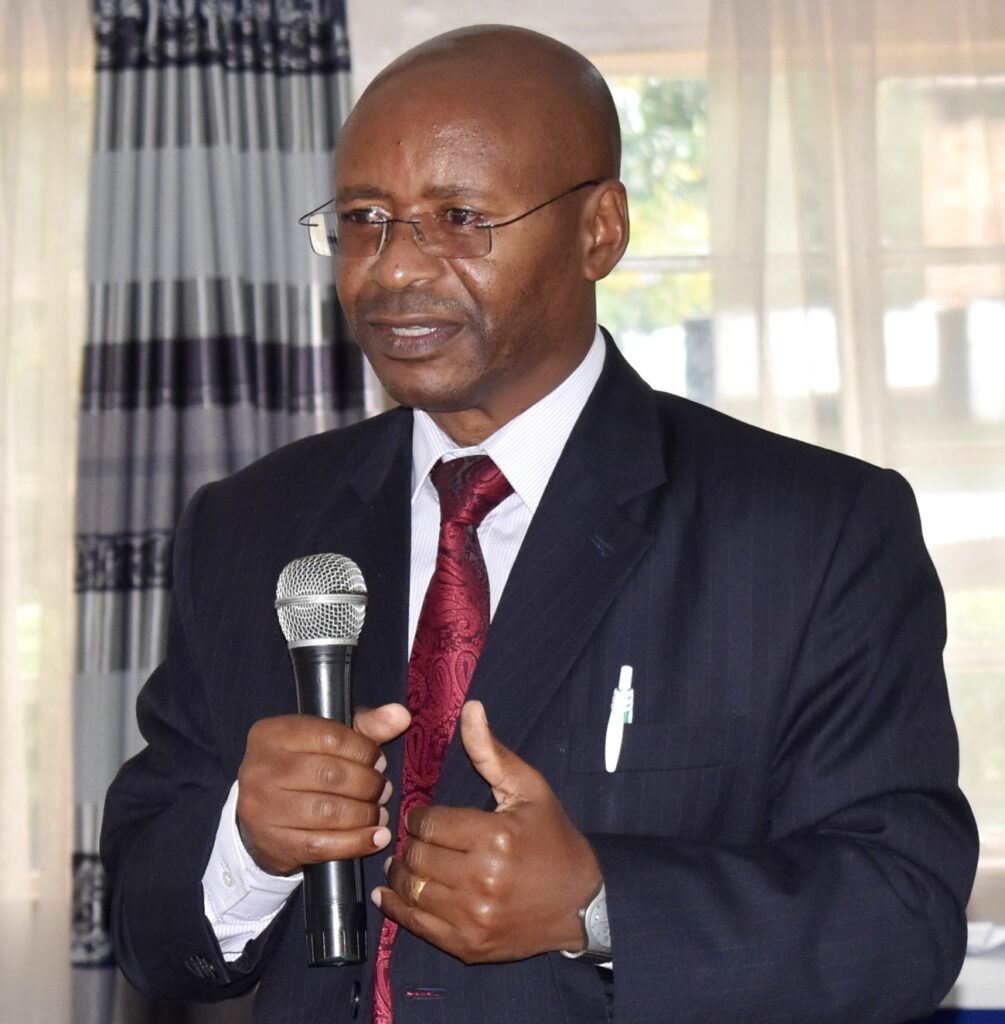
Climbing beans, brewing waragi and mushrooming soft drinks impacting on the environment
Kabale used to grow the bush beans (short beans) until they became unproductive, research replaced them with high yielding climbing beans. These require a small area to yield highly and because they climb, they need to be staked.
Staking them needs some sticks which come from trees. Every household grows climbing beans but not every household has trees to get sticks from. So careless households who don’t have tree sources go and encroach on other peoples trees and they carelessly cut the branches.
Prof. Mugisha said the forest stand in Kabale district is highly threatened.
“There used to be significant forest cover. The estimation we have from National Forest Authority is that in the1990s, we had about 4.9 hectares of forest cover but after 25 years, by 2015, the forest cover had reduced to about 2.2 hectares indicating a 50% loss of the forest cover. If that trend is not checked, we are likely to have zero forest in some few years to come. The reason everybody must come on board is so that we do the planting, conservation and careful harvesting of the existing trees”, The Deputy Director said.
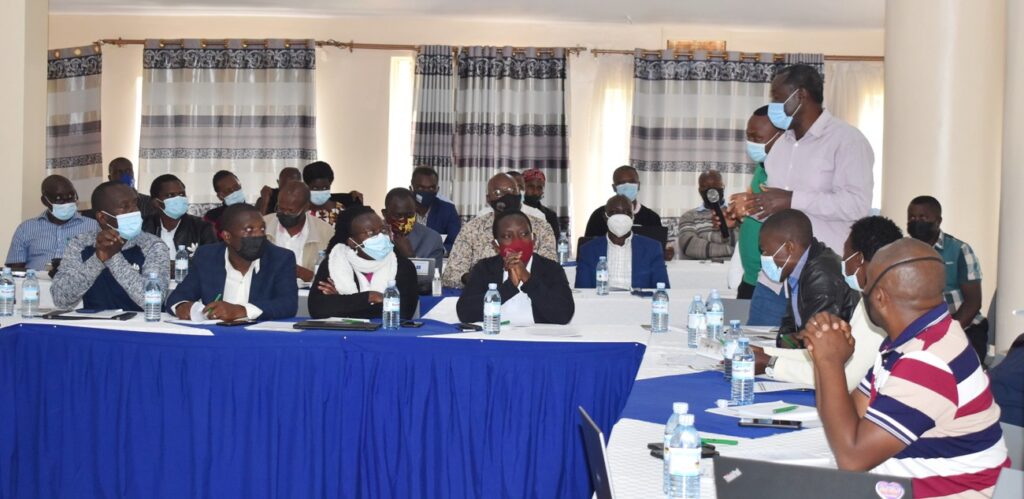
In his opening remarks, the district chairman Nelson Nshangabasheija thanked Makerere University for initiating the program to discuss how the district can protect the natural resources.
“The challenge here is brewing crude waragi and soft drink factories working near lakes and rivers. Our climate used to be very good but now, with these factories, they are damaging our natural resources. As political heads in the district, we are trying to see how we can work together to protect the natural resources”, Nshangabasheija said.
Nshangabasheija emphasized that the district was planning to relocate the factories from the lake and river side and near wetlands to alternative areas. To regain the beauty of trees and lakes, and to reduce soil erosion, the district he said, is considering coming up with a bye-law compelling the population to plant three or more trees for one tree cut.
The Regional Crime Intelligence Officer for Environmental Police Protection Unit in Kigezi region Sam Kyomukama said among the six districts which make Kigezi region, Kabale is the worst hit in terms environmental degradation. Others are Rubanda, Rukiga, Kanungu, Rukungiri and Kisoro.
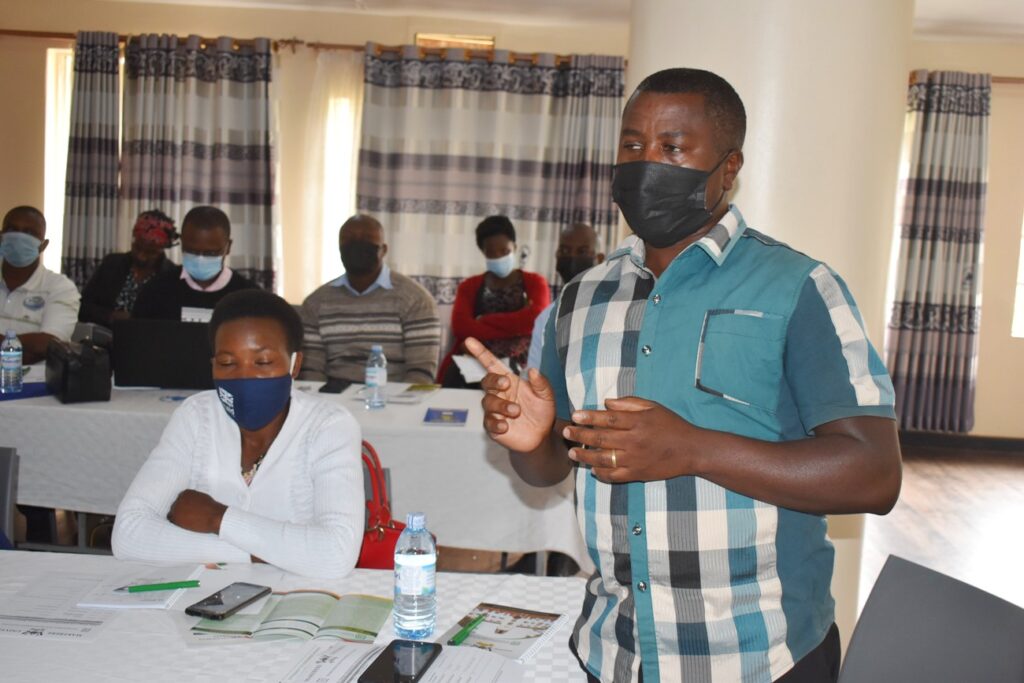
“About 90% of the wetlands in Kabale have been depleted and as we talk now, there is no intact wetland in the district. All wetlands were cultivated and are under Irish potatoes. Rivers have been encroached on and people are dumping in soil and, wherever you go to the site for enforcement, they have big people who threaten us. The encroachers are protected by politicians like Members of Parliament and Councilors making it difficult to execute our work”, Kyomukama said.
He said just as was the case in Kabale, forests in other districts were being threatened by deforestation to provide charcoal for cooking as a major fuel source .
Kyomukama also reported that all rivers in Kabale have been encroached on by agricultural activities up to the banks resulting to power blackouts whenever it rains as power has to be switched off to remove the silt from Maziba dam.
Kyomukama decried inadequate support to the unit which hinders effective movement to all districts saying, he currently moves on a motorcycle to carry out enforcement in the six districts.
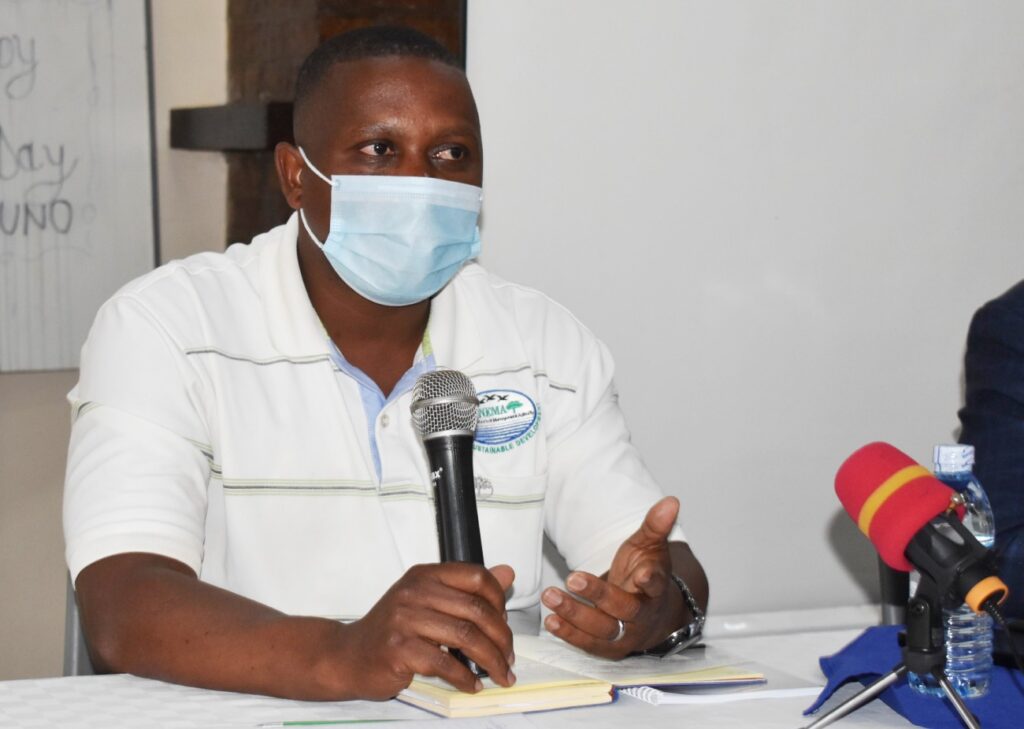
“In addition there are mushrooming factories of soft drinks including these ones called Babababa, Numi, Entare and they don’t have control. Another problem we have is waragi brewing done in wetlands where they divert rivers to work as coolants.
This is dangerous because they are using molasses and whenever molasses drops on grass, within three days, the grass is dry. These chemicals enter the rivers, rusting Maziba dam and killing mud fish and frogs in the rivers.
We are in touch with the Kabale District Police Commander and any time, we will storm, arrest and arraign culprits in courts of law.” The police officer warned.
Kabale District Forestry Officer Benjamin Ariyo said, the district does not have a gazetted reserve by government due to the recent partition of Rubanda and Rukiga districts where most of the forest reserves of the Mafuga area that covers over 1,500 hectares was taken by Rubanda district.
Kabale District he said, only relies on private planters and given the nature of the land tenure system of Kigezi region, most of them are small holders apart from a group called Uganda Agroforestry Network having over 150 hectares in Makanga area and all covered with pinuspatular trees that are due for harvest.
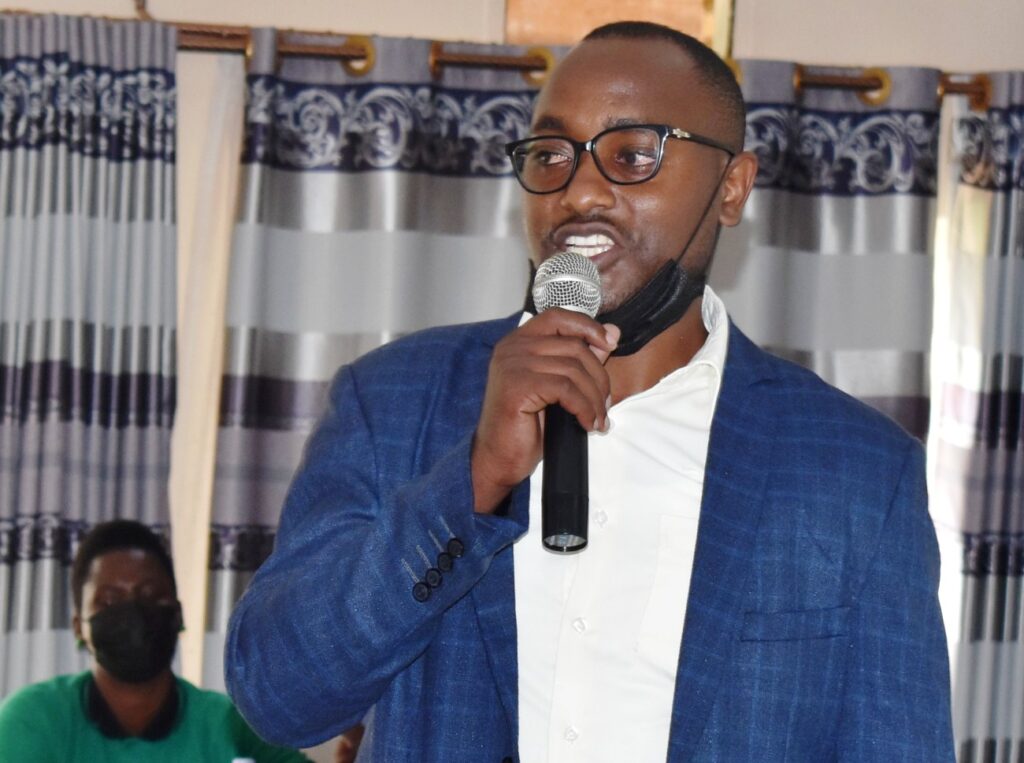
As far as biodiversity is concerned, the forest officer said, the district has species richness in wetland complexes of Bunyonyi as well as North and South Kiruma, with over 312 species of birds like the grey crested crane that is being conserved by nature Uganda in collaboration with the Crane Foundation.
Ariyo explained that Kabale district has a record of over 149 plant richness species both indigenous and exotic, woody and non woody, stating that due to population explosion,infrastructural development and weak policies regarding to wetland use, the biodiversity and forestry recovery in the area has been greatly affected.
The forestry officer reiterated the challenge of getting a winning solution between wetland users and politicians, saying that most of them encourage people to remain in wetlands yet people were experiencing variations in climate conditions of the area.
“Initially during the month of June to August, you would enter Kabale and feel a different breeze but now we are uncertain, we don’t know when the rains are coming,when the sun is to shine, there are lots of changes in rain seasons, the dry spell goes up to April yet April and September used to be rainy seasons”, He said.
Ariyo underscored the need to restore forestry and vegetation cover within the district noting that due to population explosion, people are using resources unsustainably.
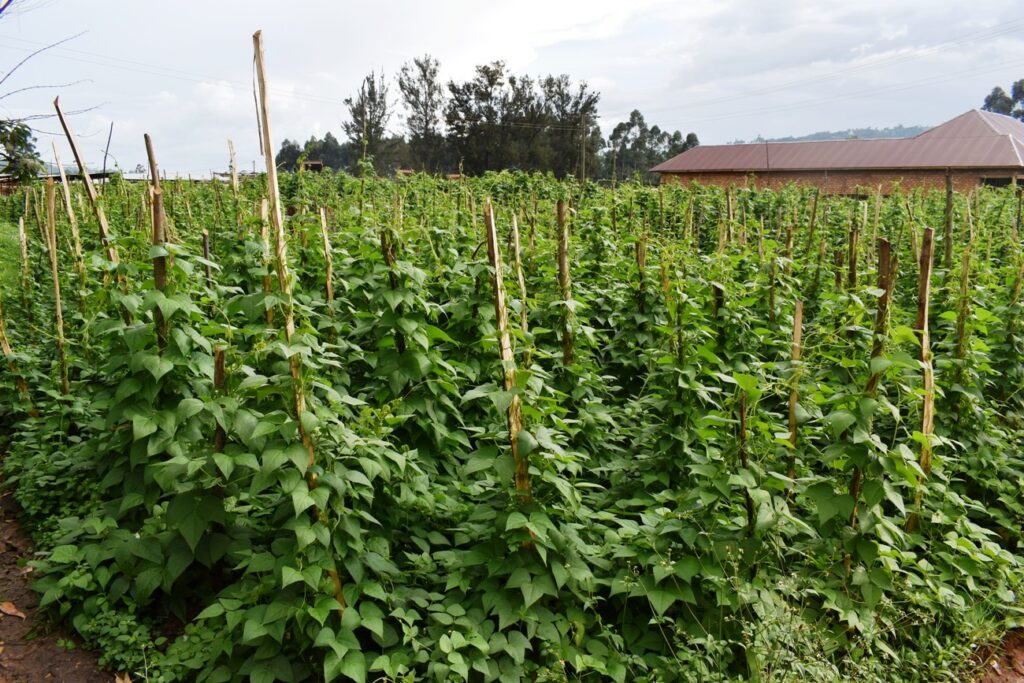
“For instance, there is a tree called black wattle, a hard wood tree that takes up to 35 years to mature, yet good for charcoal and firewood but due to its propagation means, it is hard to get it and its seedlings because it is being threatened.
There are mammals that are getting extinct especially the swampy rats. Those ones are already on the red list of the endangered species but it is all attributed to uncontrolled human activities within the district related to unsustainable resource use,” Ariyo stated.
The forest officer reported that although climbing beans are the only performing bean varieties within the district, they are the biggest problem to forest conservation.
He explained that for someone to produce beans, they need climbing sticks and they tend to use young eucalyptus sprouts, indigenous shrubs and small trees. These take a short time like three months yet collected sticks cannot work for three seasons because of being exposed to termites.
“You find that they are cutting down trees for two seasons per year leading to quick vegetation loss. If different varieties of beans can be developed by agriculturalists, we shall be able to conserve our trees. Agriculture does not only take away the trees, it also uses a lot of fertilizers and sprays chemicals which kill bees as pollinators. Someone who has been harvesting 100 avocados from his tree, is now harvesting 20-30 because of poor pollinators.”
Jane Anyango is a Principal Communication Officer at Makerere University
You may like
-
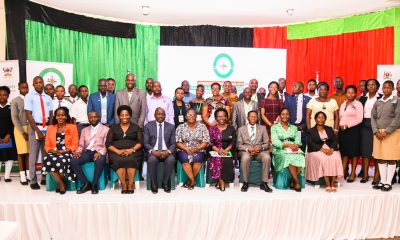

Mak develops new model to aid teaching of Maths in Lower Secondary Curriculum
-
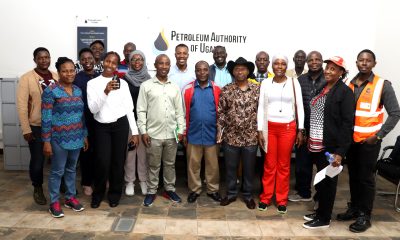

Mak Environmental Economists Explore Uganda’s Albertine Oil Fields: Identifying Research and Collaboration Opportunities
-
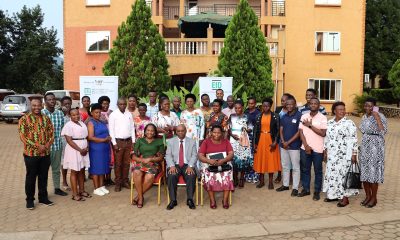

EfD Hosts Policy Dialogue on Energy Efficiency and Reduced Emissions: Hoima Residents Call for Expanded Access to Clean Energy
-
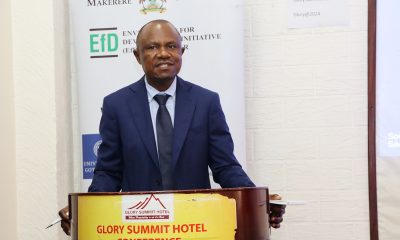

EfD-Uganda Holds Inaugural AGM: Celebrates Milestones and Outlines Future Plans
-
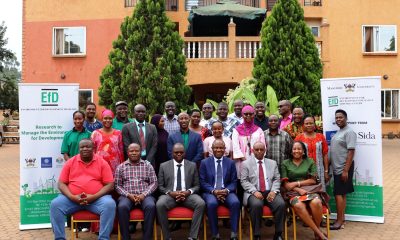

EfD Uganda AGM Endorses Professors Edward Bbaale and Johnny Mugisha for Directorship
-
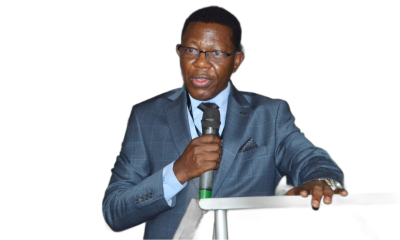

Prof. Buyinza Mukadasi Appointed Acting DVC Academic Affairs
Agriculture & Environment
FoodLAND Project Research Dissemination: Nakaseke District Farmers Sensitized on Modern Agricultural Practices & Proper Nutrition
Published
4 days agoon
July 23, 2024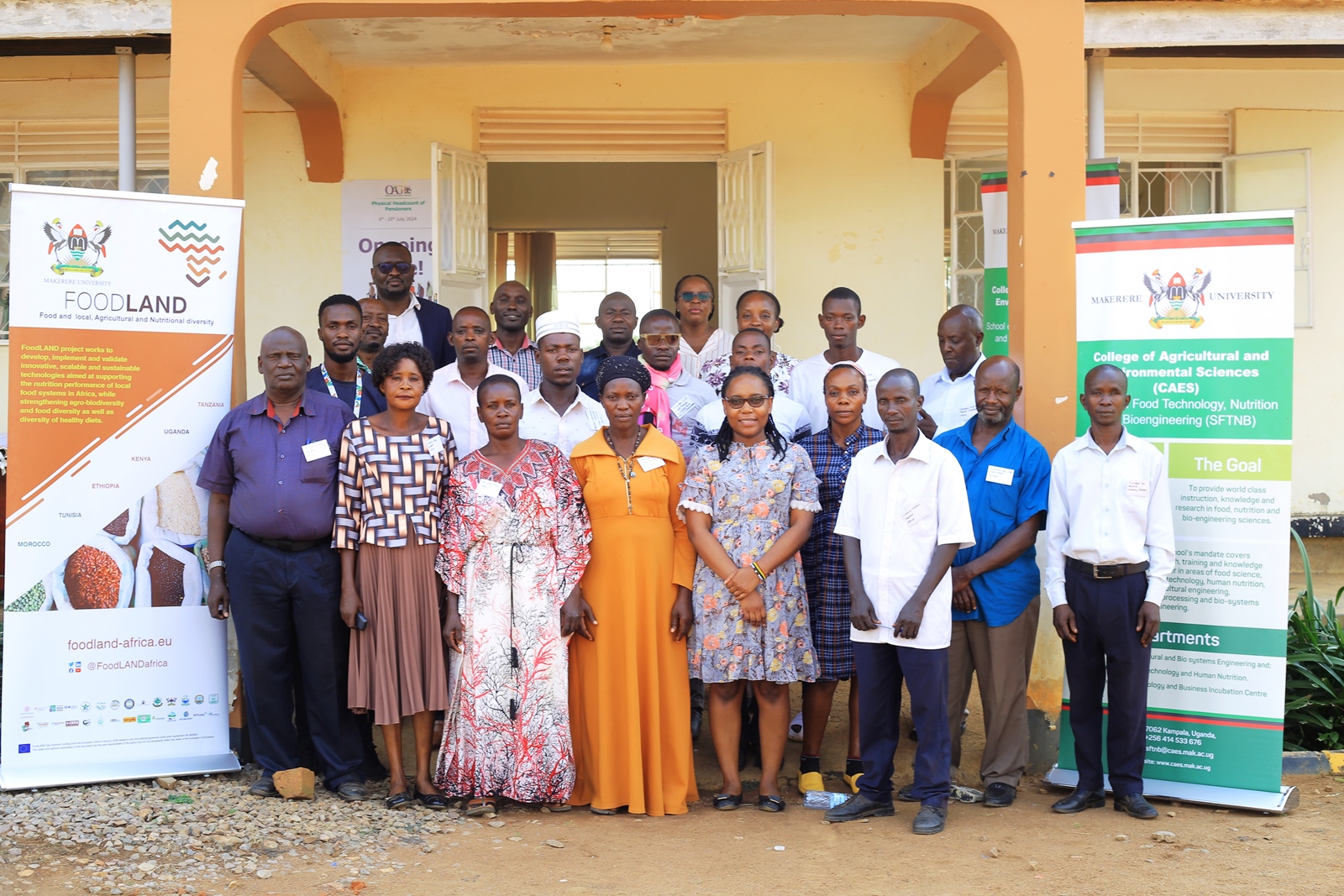
******Food and Local, Agricultural, and Nutritional Diversity (FoodLAND) project aims to develop, implement and validate innovative, scalable, and sustainable technologies aimed at supporting the nutrition performance of local food systems in Africa, while strengthening agro-biodiversity and food diversity as well as diversity of healthy diets.
Experiences of Nakaseke District farmers
Farmers in Nakaseke District are indebted for the support and training received from the FoodLAND Project. Although many had been engaged in the activity, they lacked knowledge and skills of modern farming. Connected to FoodLAND through VEDCO, a non-governmental and not for profit agricultural organization, the farmers have acquired skills on value addition, precision irrigation/fertigation, smart storage systems, gardening and hydroponics systems, biodegradable mulching, precision crop protection systems, precision harvesting systems and agro-ecological intensification practices.
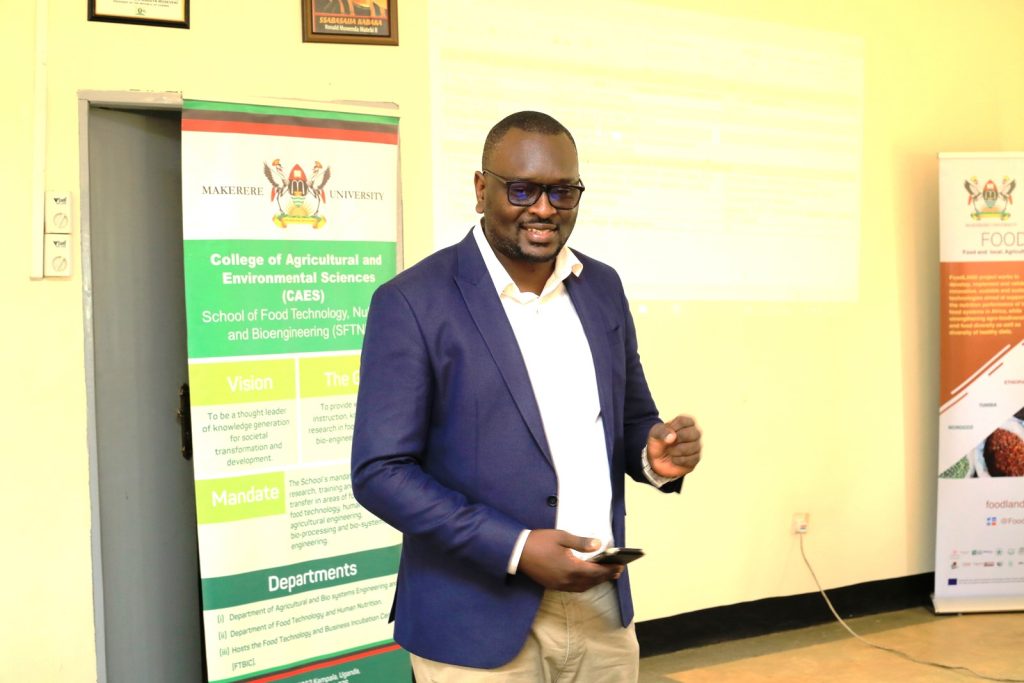
According to Ms. Nakawuba Sarah, a widow and tomato farmer in Kapeeka Sub County, Nakaseke District, the knowledge acquired has enabled her to expand, and gain more profits. “I extend my gratitude to FoodLAND and the funders of the project. The knowledge acquired over time has enabled me to expand my farm and earn more money. Due to ignorance, we used to be exploited – people would buy our products cheaply because we lacked knowledge of preservation. The training on value addition has helped us learn how to preserve our products and we are now benefiting more from them. At the time my husband died, we had just a small house built on his father’s land. I am happy that with the support received from VEDCO and FoodLAND, I have bought a plot of land, built a house, and I am able to pay school fees for my children. I once again thank VEDCO and the FoodLAND. Although the FoodLAND project is ending soon, I request that they do not leave us. They should continue training us so that we further improve our skills.”
Mr. Lubowa Samuel Sunday, also a farmer in Kapeeka Sub County, Nakaseke District is equally grateful. Through FoodLAND, several farmers in Nakaseke District have acquired knowledge of climate smart agriculture. “Farming in the dry season is no longer a challenge. Our harvest has increased and we are now earning more. However we still face a number of challenges including the high cost of fertilizers and pesticides. We appeal to the project team to conduct more research on natural remedies for the challenges we are experiencing.”
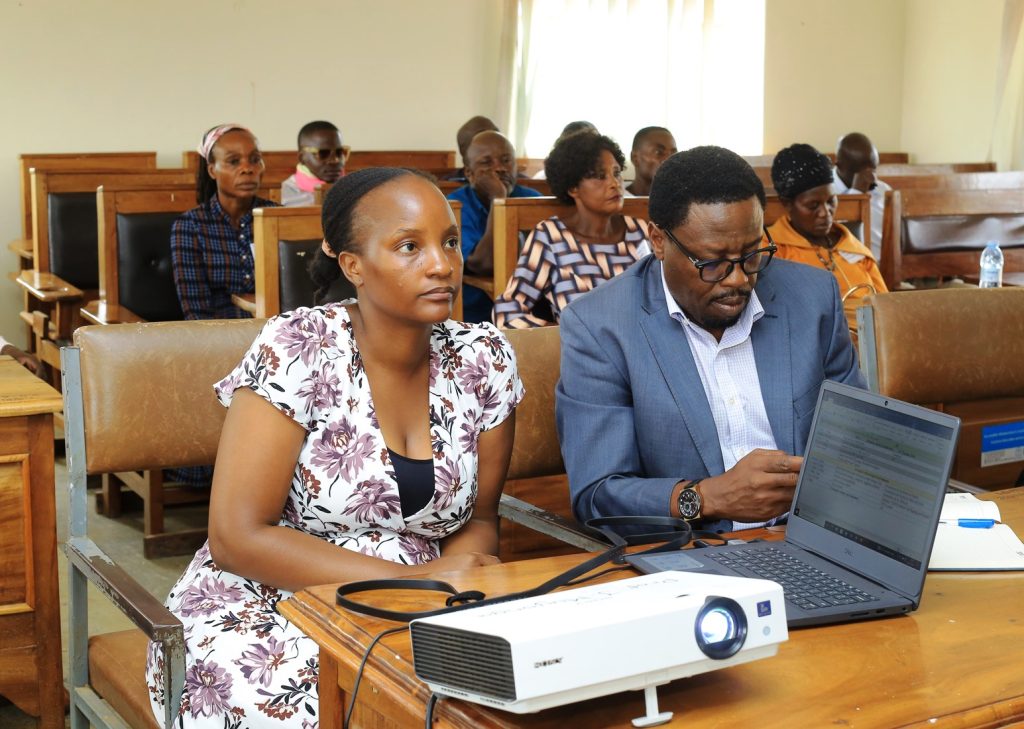
Ms. Nankya Jane, a coffee and banana farmer Semuto Sub County, Nakaseke District, the irrigation skills acquired through the project have greatly improved her farm. “The place where I do my farming was so dry, and this, in many cases, affected my yields. Through VEDCO, we were taken to the Makerere University Agricultural Research Institute Kabanyolo (MUARIK) where we acquired skills on proper irrigation and value addition using technologies developed by the FoodLAND Project. If I had acquired these skills when I started 7 years ago, I would be very far. My appeal is that you continue offering training to us. There is a lot more that we need to learn.”
About the FoodLAND project
Launched in 2020, the main objective of the FoodLAND project was to develop, implement and validate innovative, scalable and sustainable technologies aimed at supporting the nutrition performance of local food systems in Africa, while strengthening agro-biodiversity and food diversity as well as diversity of healthy diets.
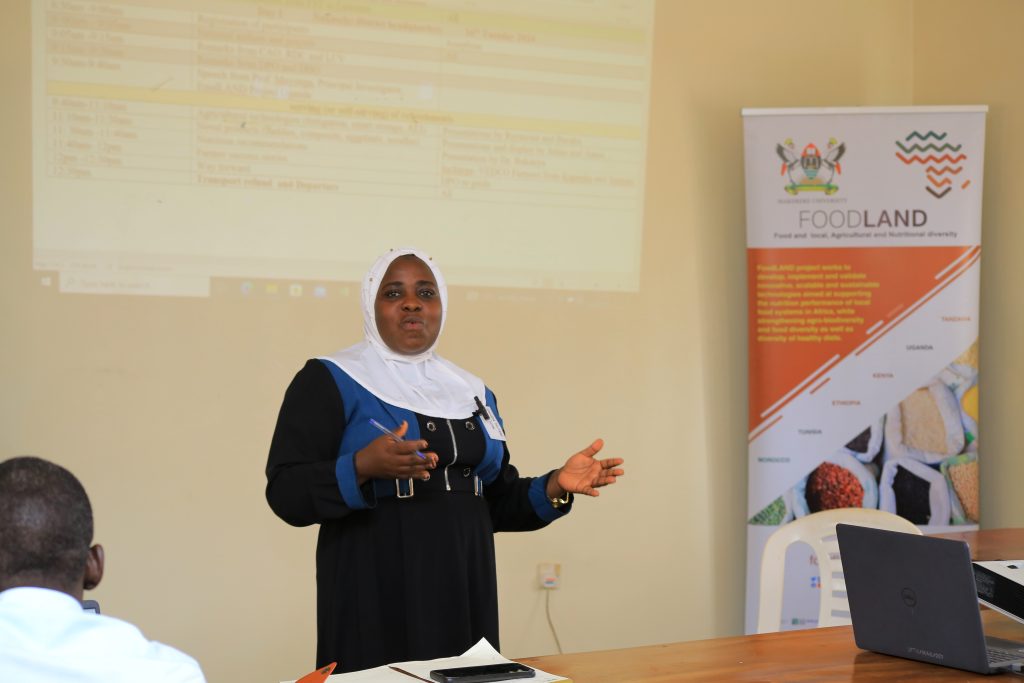
Funded to the tune of 7 million euro by the European Commission within the Horizon 2020 programme, and led by Alma Mater Studiorum – University of Bologna (Italy), the project committed to developing a range of innovations for local agriculture and aquaculture development, as well as to nudging consumers towards healthier eating behaviour in six African countries: Morocco, Tunisia, Ethiopia, Kenya, Uganda and Tanzania. The project specifically aimed to empower smallholder farmers and food operators, foster nutrition responsive and sustainable agro-biodiversity, reinforce the productivity and resilience of food supply chains, and create new market opportunities at both the local and global scales, thereby encouraging the flourishing of rural communities. The project was envisaged to create a network of 14 local Food Hubs—paired with 14 separate cities in these countries—that would mobilise relevant actors in rural, urban and peri-urban communities and serve as injection points for testing and introducing the innovations. The 28 partners that comprise the FoodLAND consortium (18 of them African institutions while the other 10 are European) were expected to work together to develop, implement and validate 12 technological innovations; which include organizational and technological innovations for both vegetable and fish farming and food processing systems, together with 17 novel local food products, ranging from fresh, dried and processed vegetables and fish to composite flours and therapeutic foods.
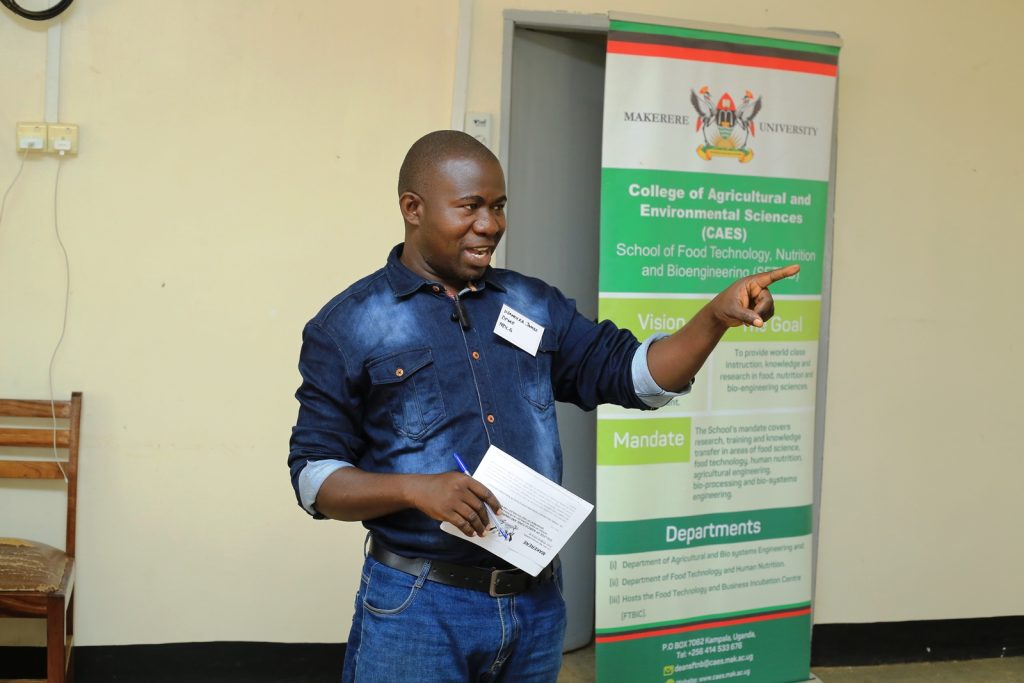
In Uganda, the project was implemented in 6 districts namely; Masaka, Nakaseke, Kamuli, Lwengo, Mukono and Wakiso, and was led by Prof. John Muyonga from the Department of Food Technology and Nutrition, College of Agriculture and Environmental Sciences (CAES), Makerere University. Other members on the project were: Prof. Johnny Mugisha from CAES; Dr. Cassius Aruho, Dr. Puline Nakyewa, Dr. Margaret Masette, Dr. Getrude Atukunda and Dr. Justus Rutaisire from NARO; Mr. Henry Nsereko from VEDCO; and Prof. Dorothy Nakimbugwe from Nutreal.
To date, the project team in Uganda has registered a number of achievements including;
- New nutrient enhanced food products – Noodles containing orange fleshed sweet potatoes and biofortified beans; instant flours containing orange fleshed sweet potatoes, biofortified beans and grain amaranth; and dry eggplant. Arrangements are in place for commercialization of the technologies by SMEs.
- Establishment of infrastructure at MUARIK for research and training on fertigation (irrigation that supplies water together with manure) and precision irrigation.
- Development of technology for smart cold storage of perishable foods such as fruits and vegetables. The technology allows for remote monitoring of temperature and relative humidity.
- Development of technology for rodent control in stores. This technology has been shown to be effective in preventing of rodent damage to food in stores.
- Promotion of agro-ecological intensification – Applying ecological principles to ensure sustainable agricultural production.
- Testing application of bio-based packaging of food
- Training of 100 farmers in different production technologies.
- Training of 3 M.Sc.
- Developing of nutrition guidelines for adults and the elderly.
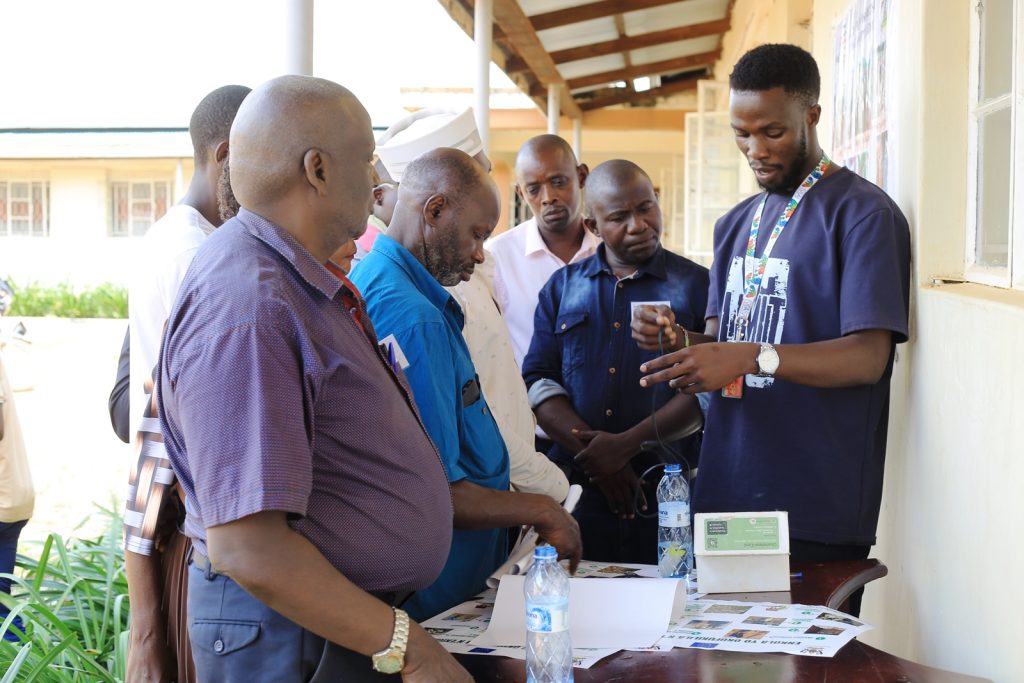
Dissemination of the project findings and achievements to farmers and district leaders in Nakaseke
On 16th July 2024, the project team held a dissemination workshop for Nakaseke District leaders and farmers to sensitize them on different aspects including the research findings and recommendations for improved farming practices. Coordinated by Ms. Josephine Kisakye, and conducted at Butalangu District Headquarters, the workshop was attended by representatives of farmer groups in Nakaseke as well as the district officials, including the CAO, DHO, DPMO and RDC. On behalf of the Project Coordinator, Dr Richard Bukenya, also a member of staff in the Department of Food Technology and Nutrition briefed the farmers on the findings of the project, highlighting the project objectives and progress made thus far, including the technologies, novel raw materials, ingredients and food products developed. Under the project, a number of technologies for smart farming have been developed and are being tested. These include: Digital tools for precision agriculture, farming management systems like the rodent control system as part of smart storage systems, and the food processing systems like the solar drier.
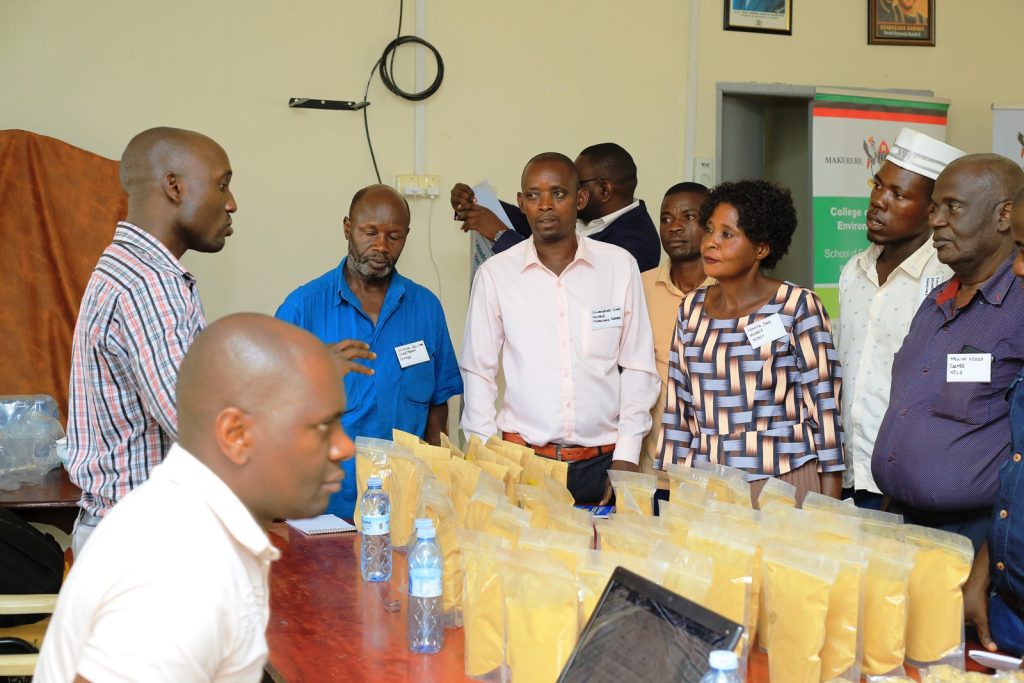
During the workshop, Mr. Barak Price, a student on the project sensitized participants on the rodent control system. He also trained the farmers on precision irrigation/fertigation. The farmers were also taken through the processes of value addition. Ms. Josephine Kisakye, a researcher on the project discussed the nutrition recommendations developed by the project. In the course of the project activities, it was noted that diets in Uganda are mainly composed of starchy staples, especially cereals, roots, tubers and bananas, with legumes constituting the main protein source. Intake of micronutrient-rich foods is low, despite various interventions to promote consumption of fruits, and vegetables. Ugandan adult and elderly population in both rural and urban areas were found to be at risk of under-nutrition and micro-nutrient deficiencies. Nutritional recommendations included: i) Daily consumption of locally available fruits and vegetables, whole starchy staples, and protein-rich foods; including beans, peas, nuts, fish, eggs, and meat; ii) Limiting the consumption of fried foods, salt, alcohol, and sweetened beverages; iii) Hydrate with fluids, preferably water; Regular engagement in moderate-intensity physical activity like brisk walking, digging, swimming, aerobics, and cycling; vi) Undertaking medical examination at intervals of no longer than 6 months to facilitate timely detection and treatment of ailments like diabetes, hypertension, high plasma cholesterol and cancers.
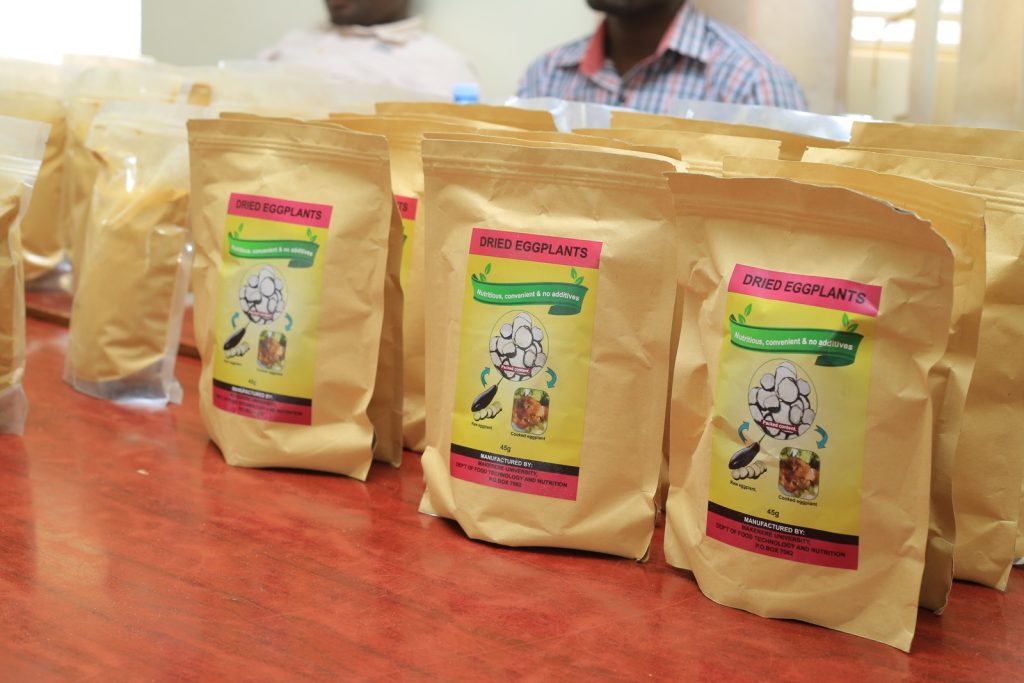
Appreciation by the District officials
Butalangu Town Clerk, Ms. Rashida Mutebi on behalf of the Chief Administrative Officer appreciated the project for reaching out and working with the local communities to improve their livelihoods. “The trainings on value addition will go a long way in saving our farmers losses,” she noted, calling for resilience and cooperation amongst the farmers. “It is important that you work together. Always share best practices if you are to improve yourselves and gain more from farming. I also implore you to always keep records of your farming activities.”
In his remarks, Nakaseke District Health Officer, Dr Alija Simon noted that the challenge of non-communicable diseases was on the raise due to poor feeding habits. He expressed gratitude to the project for incorporating the important aspect of nutrition in its research.
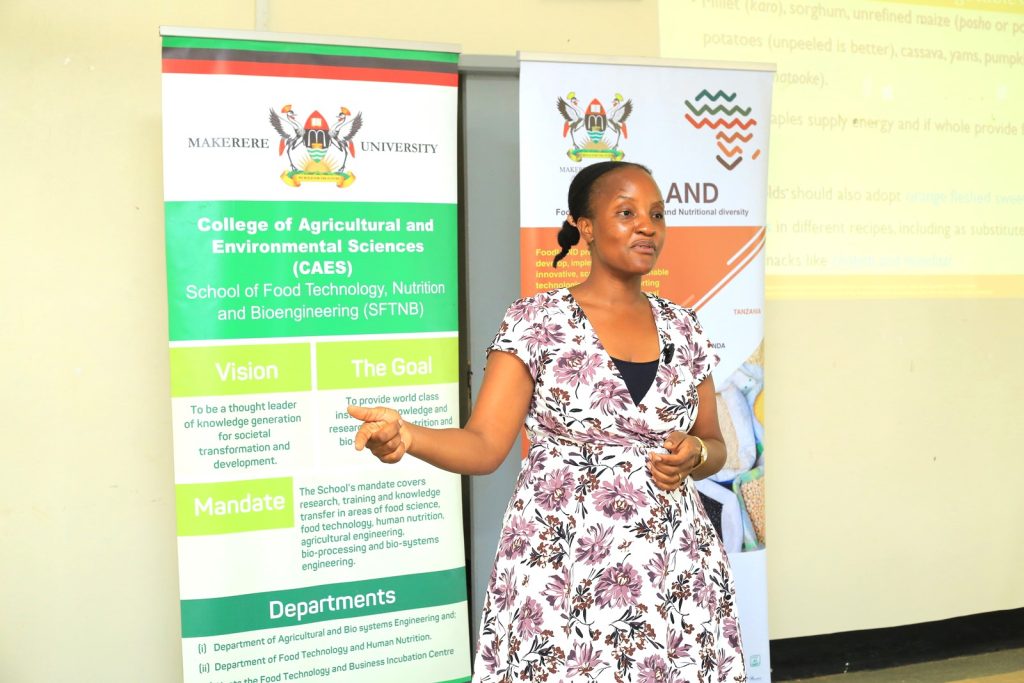
DPMO Wandera James appreciated the Government of Uganda for investing in farming. He also appreciated the project team for the trainings offered to the farmers in the district, noting that value addition was a key area of focus in the Parish Development Model. “Nakaseke is now becoming a food hub. I thank Makerere University for working with the communities. Initially, research was done but stopped in the shelves of the University. We are happy that you are now working with the communities to identify solutions to the challenges undermining agriculture. Research should be conducted for development.”
Addressing participants, the Assistant RDC, Nakaseke District, Mr. Muhoozi Michael appreciated Makerere University, specifically the FoodLAND Project, calling for more innervations to support farmers in the district out of poverty. He implored the farmer groups to form a cooperative, noting that the latter forms a better platform for soliciting support.
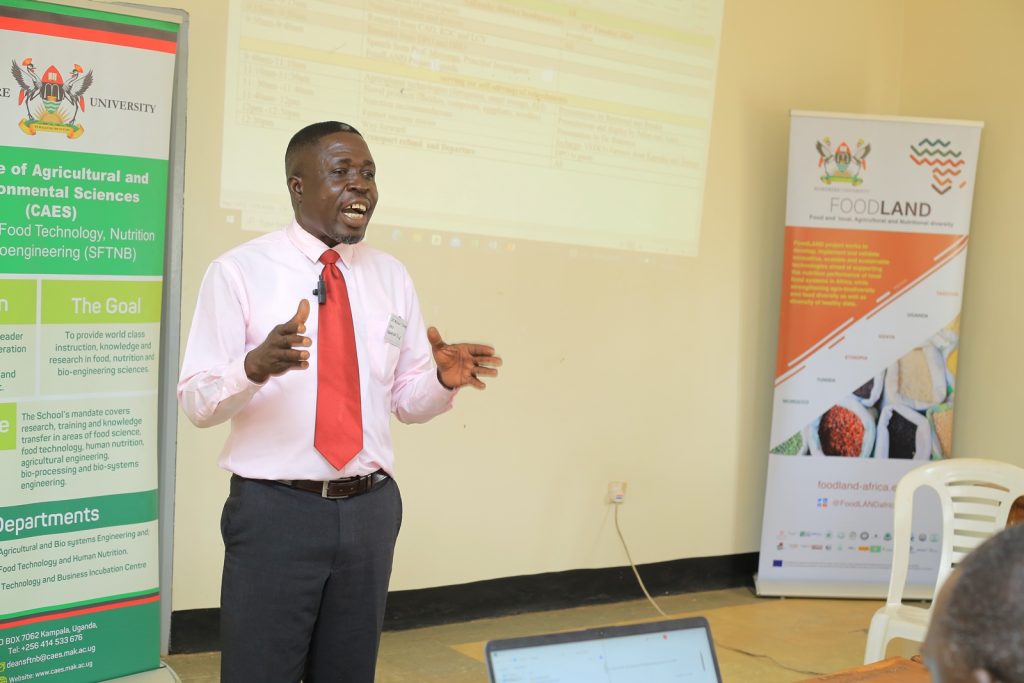
A similar dissemination exercise was conducted in Kamuli District in Eastern Uganda.
More photos from the FoodLAND project Nakaseke Dissemination
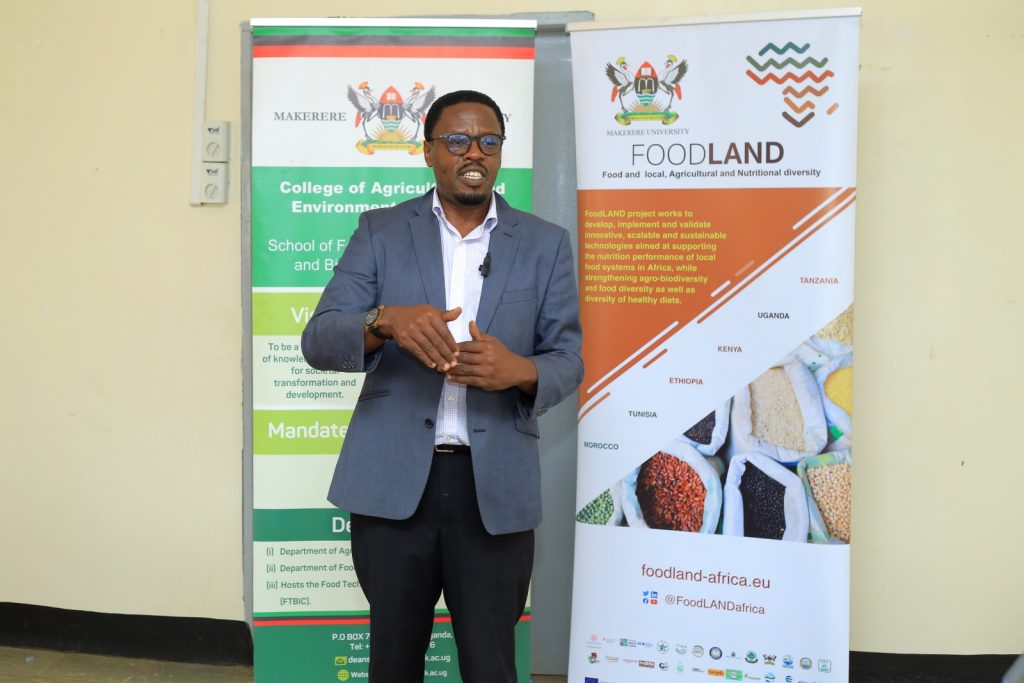
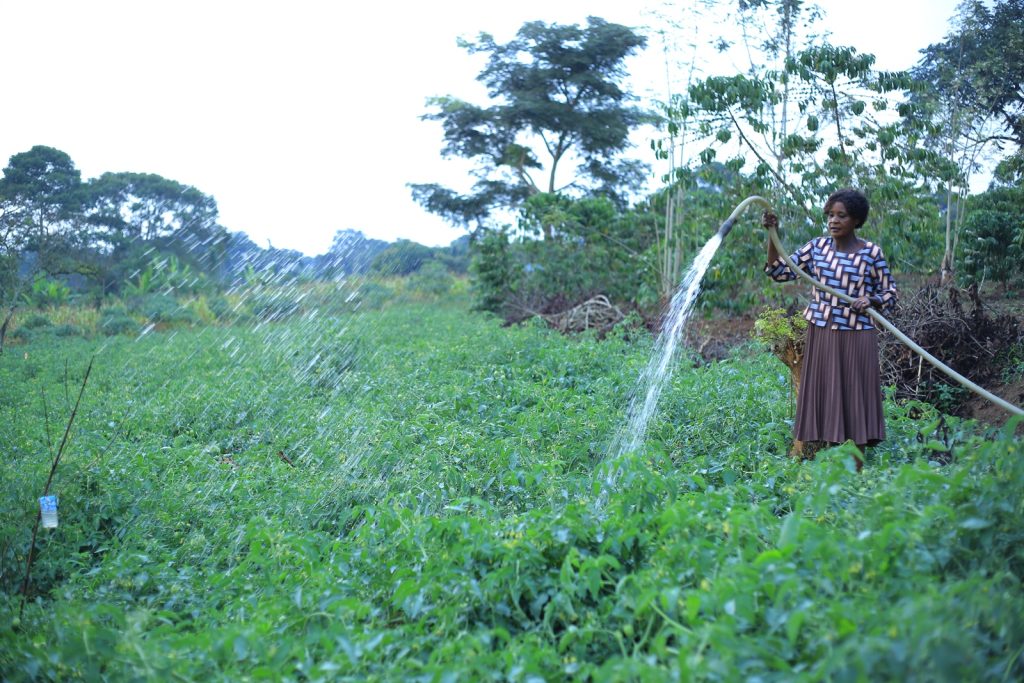
Agriculture & Environment
Mak, Oregon State University Sign Cooperation Agreement
Published
1 week agoon
July 19, 2024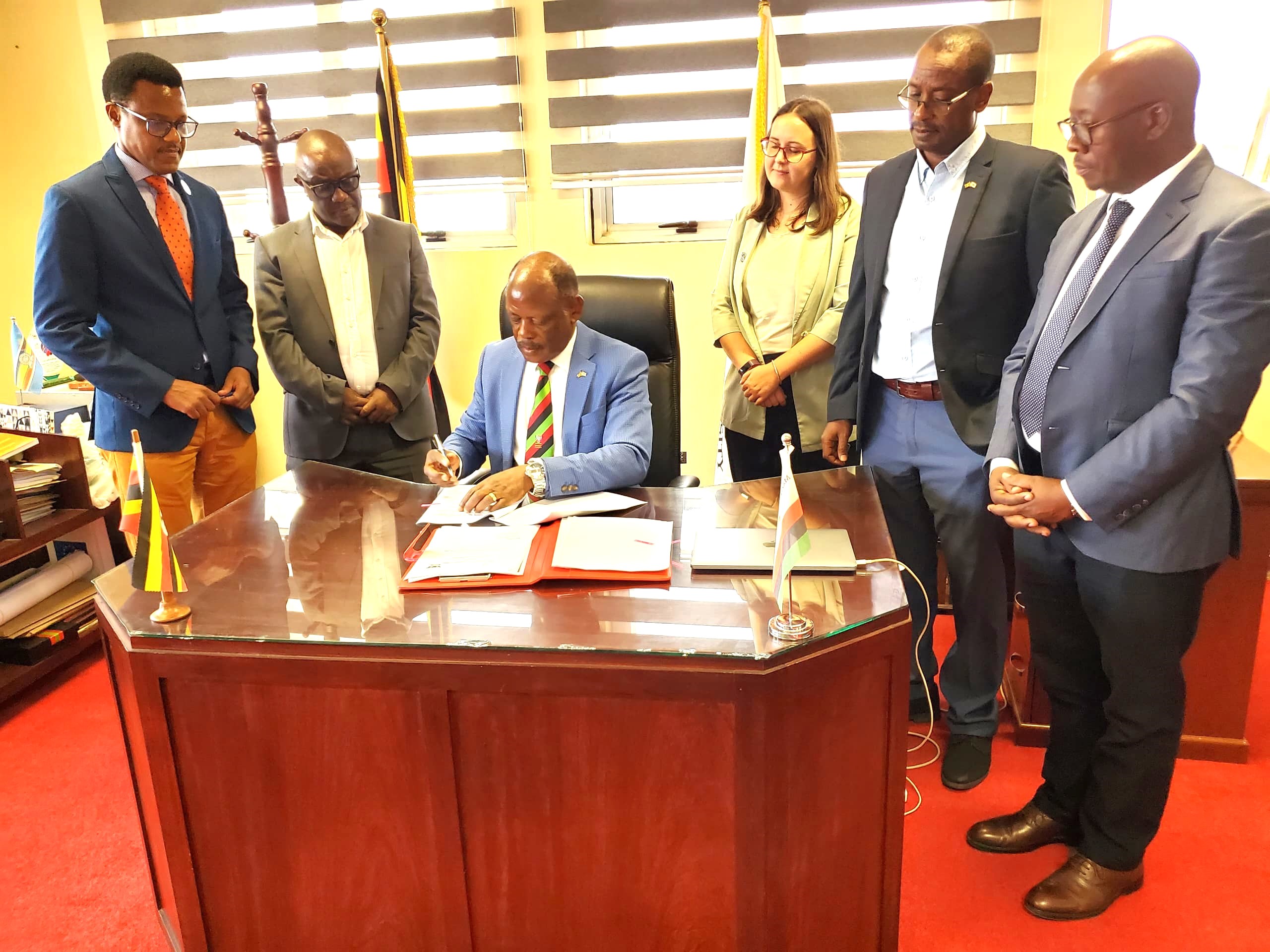
Makerere University Vice Chancellor, Prof. Barnabas Nawangwe on 19th July 2024 endorsed the Memorandum of Understanding between Makerere University and Oregon State University to collaborate in different aspects of academics. The MoU signing ceremony was witnessed by members of staff from the College of Agricultural and Environmental Sciences (CAES) namely; Dr Revocatus Twinomuhangi, Dean, School of Forestry, Environmental, and Geographical Sciences; Dr Lawrence Orikiriza Head, Department of Forestry, Biodiversity and Tourism; and Prof. Jim Ayorekire from the same department. Oregon State University was represented by Dr Ian E. Munanura, an Associate Professor in the Department of Forest Ecosystems and Society, College of Forestry, and Ms. Racheal Fahrenbach, Manager International Programs at the College of Forestry. At Makerere, the MoU will be implemented by the Department of Forestry, Biodiversity and Tourism under the leadership of Prof. Jim Ayorekire. At Oregon State University, it will be implemented by the College of Forestry.
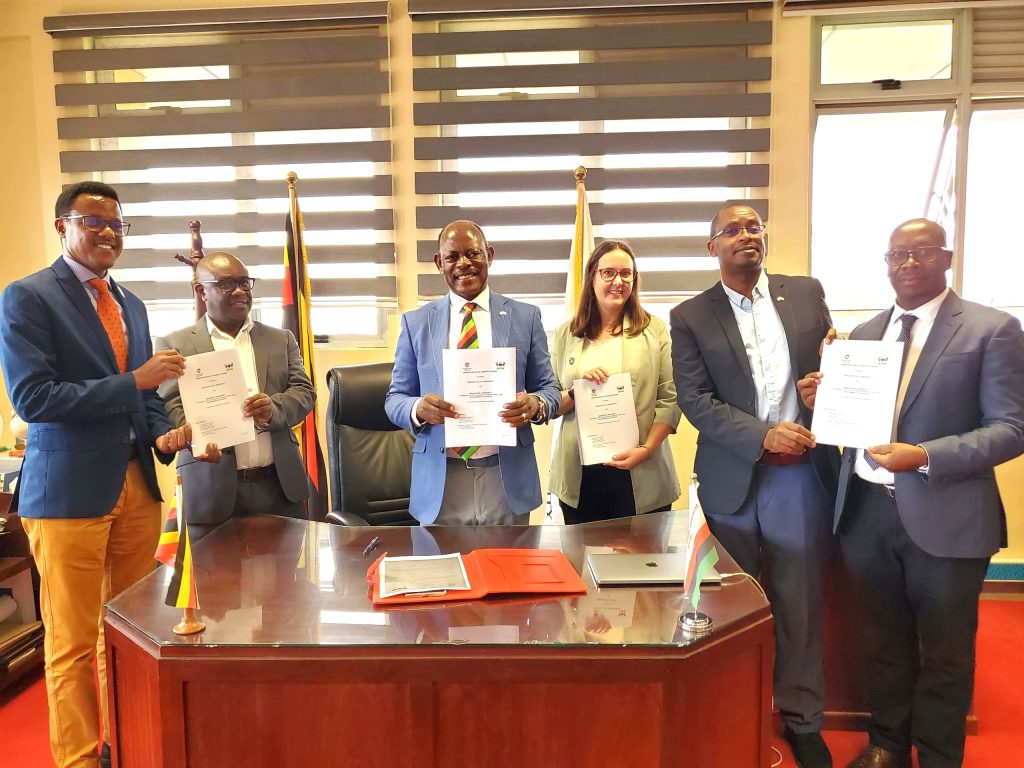
Under the MoU, the two institutions have agree to mutually promote the following programmes, based on their respective academic and educational needs; i) Exchange of scholars and faculty staff, ii) Exchange of undergraduate and graduate students for research and study, iii) Exchange of academic information and materials, iv) Joint research activities and publications, v) Participation in conferences and academic meetings vi) Joint running of short-term academic programs, vii) Resource mobilization in respect of areas of mutual interest, and any other areas which may promote their mutual interests.
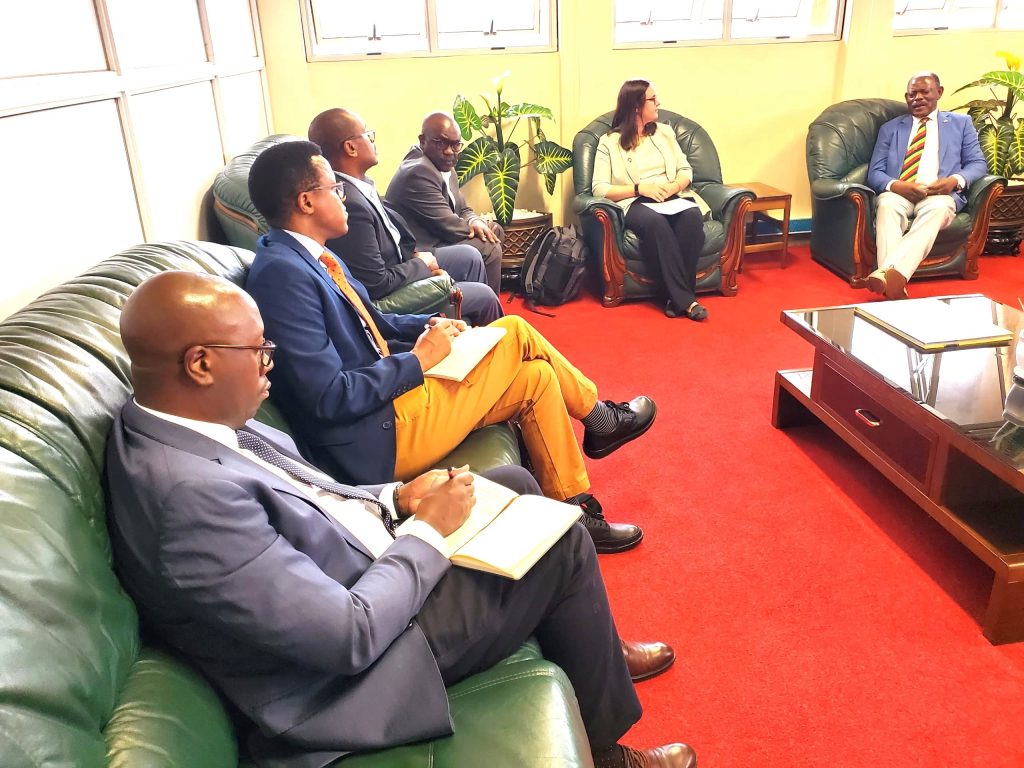
During the ceremony, the Vice Chancellor noted that programmes agreed on in the MoU were in line with the University’s Strategic Plan, and would greatly advance Makerere’s aspiration to become a research-led University. “As we move towards becoming a research-led University, we aim to contribute to the realization of Agenda 2063 which seeks to have Africa produce at least one million PhDs as one of the measures to eradicate poverty from the continent. Partnerships like this will help us achieve our target, by building our supervision capacity,” he explained, pledging support towards the implementation of the MoU.
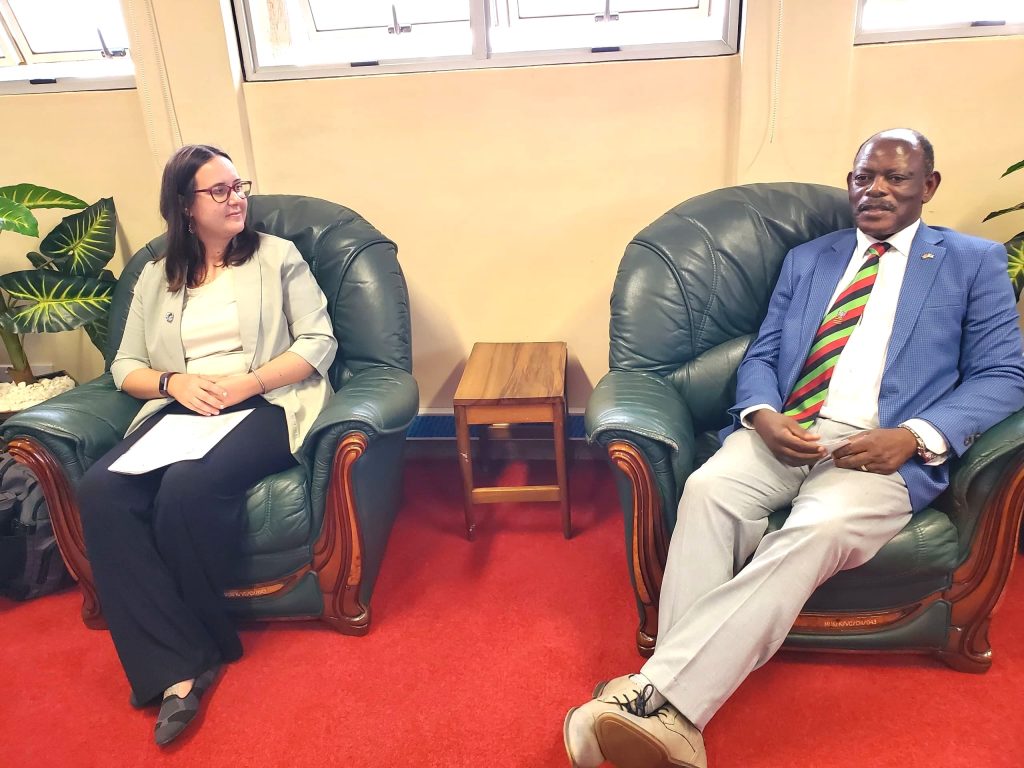
Dr Ian Munanura on behalf of Oregon State University expressed gratitude to work with Makerere, noting that the partnership would strengthen research capacity of the two institutions and support the mentorship of the next generation of scientists to deal with the challenges facing humanity including climate change and unemployment.
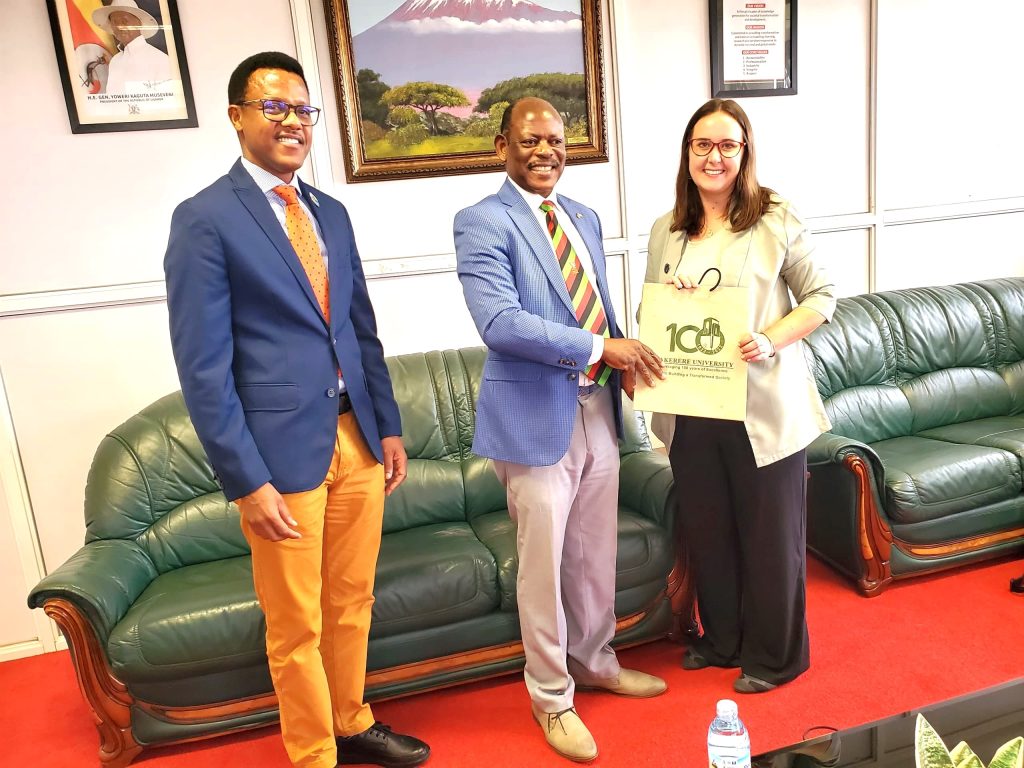
About the Department of Forestry, Biodiversity and Tourism at Makerere
The Department of Forestry, Biodiversity, and Tourism under the School of Forestry, Environmental, and Geographical Sciences at the College of Agricultural and Environmental Sciences, Makerere University offers programmes namely; Bachelor of Science in Conservation Forestry and Products Technology; Bachelor of Social and Entrepreneurial Forestry; and Master of Science in Agroforestry. Specific courses offered under those programmes include; Agroforestry Systems, Practices And Technologies; Drylands Agroforestry; Advanced Community Forestry; Gender Issues In Forestry; Advanced Biodiversity Conservation; Ecophysiology and Agronomy; Forestry For Rural Development; Natural Resource Management; Tropical Forest Ecology And Management; Forestry Business Management; Entrepreneurship In Forestry; Forestry And Food Security; Indigenous Knowledge in Resource Management; Biomass Energy Production and Conservation; Land Use Planning and Watershed Management; Forest Planning and Development; Forest Ecosystems and Livelihoods; and Forest Planning and Development. The Department also conducts a wide range of research in the fields highlighted above. The training offered exposes graduates from the department to a wide range of employment opportunities.
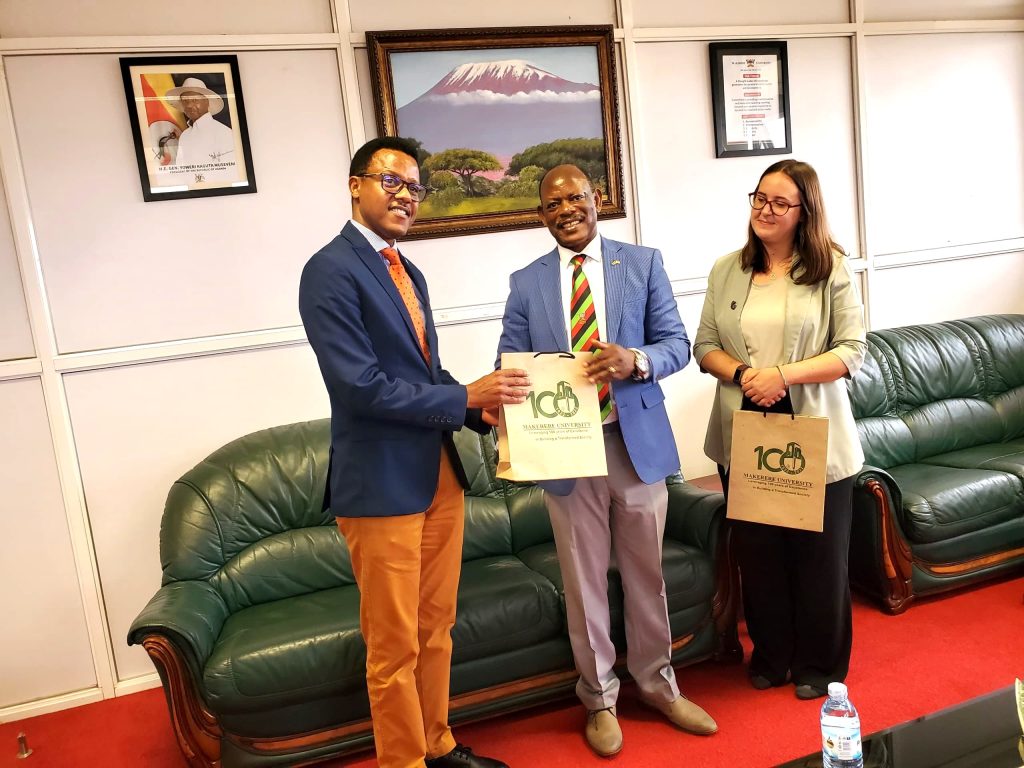
About the College of Forestry, Oregon State University
The Oregon State University College of Forestry is an internationally recognized leader that is transforming education, research and policy for managing and sustaining working forest ecosystems in the 21st century. The College offers a world-class education that provides a wide variety of opportunities following graduation. Academic excellence is the hallmark of the College of Forestry programs at Oregon State University. Ranked as one of the premier forestry schools in the world, students find a variety of programs that offer broad education, rigorous depth and professional focus. The College is known for its collaborative research approach to advance knowledge and bring solutions to issues facing forest landscapes and ecosystems. It takes pride in creating new and innovative approaches to help partners enhance people’s lives while improving the health of lands, businesses and vital ecosystems.
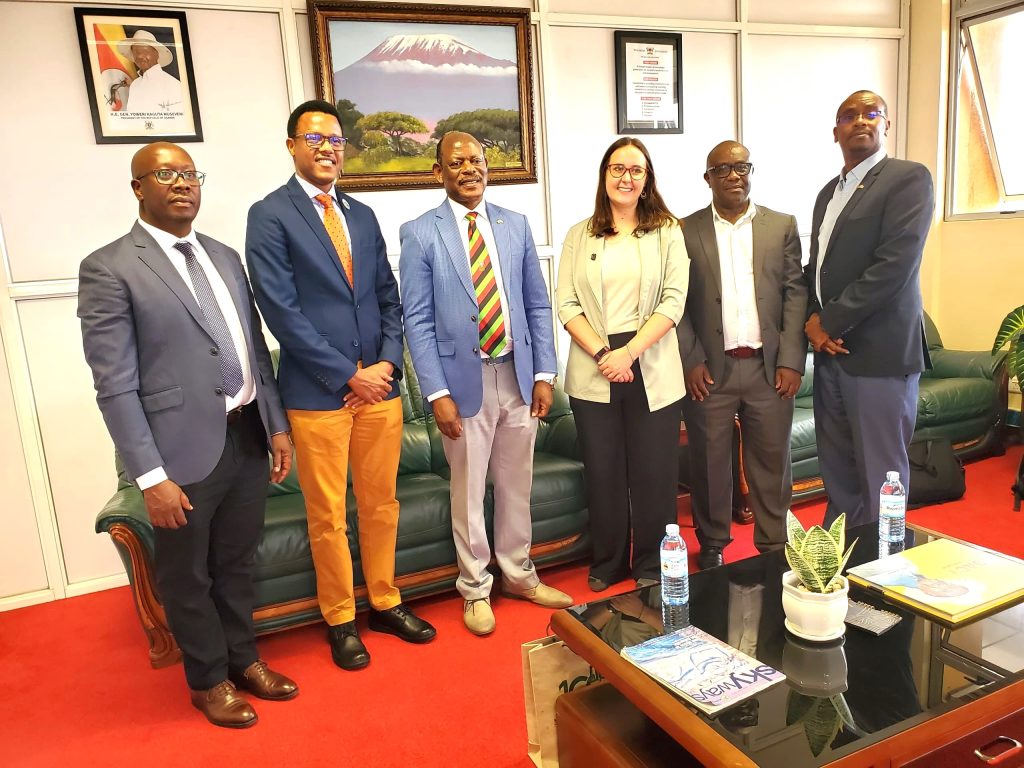
Agriculture & Environment
Call For Abstracts: 3rd International GORILLA Conference
Published
1 week agoon
July 19, 2024By
Mak Editor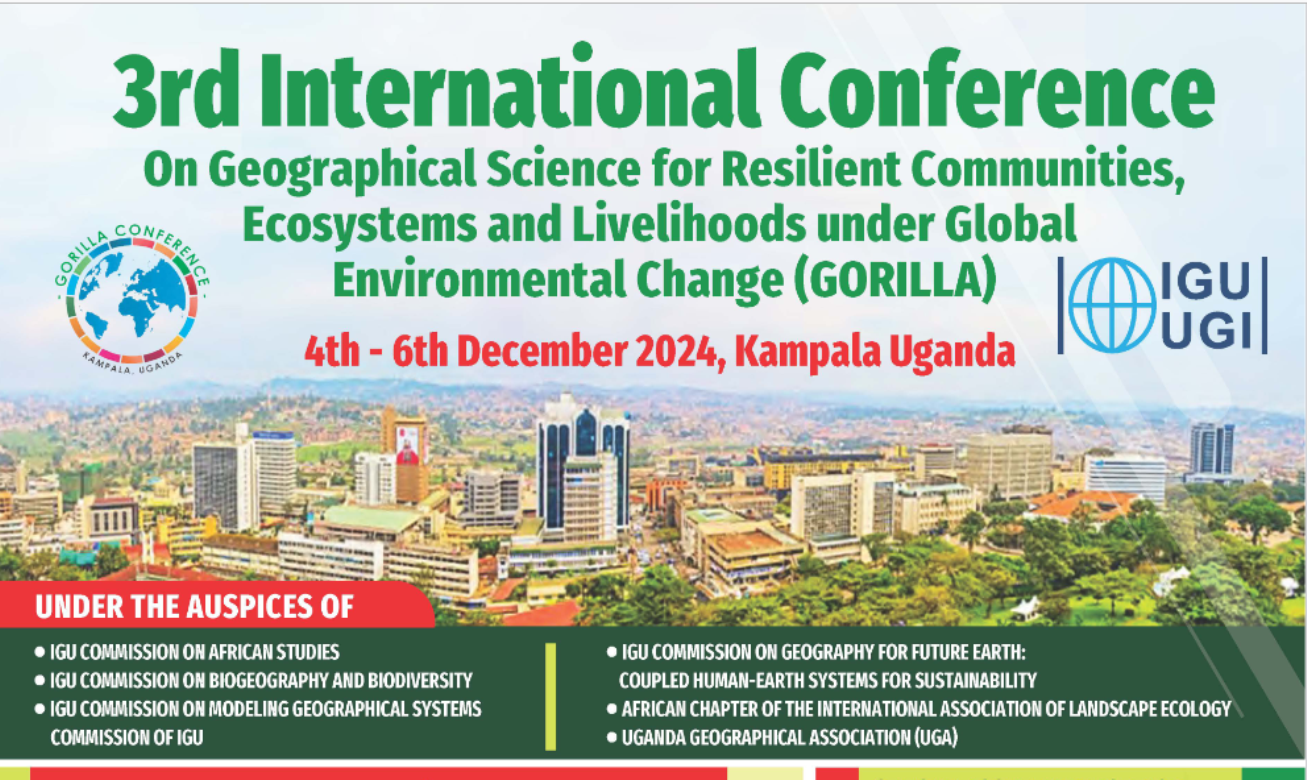
The 3rd International Conference on Geographical Science for Resilient Communities, Ecosystems and Livelihoods under Global Environmental Change (GORILLA) aims to take stock of emerging geographic oriented science and knowledge for advancing the 2030 Agenda for Sustainable Development. The GORILLA Conference seeks to harness geographic science to advance knowledge and foster positive change in understanding and addressing sustainable development challenges and opportunities at local, regional, national, and global scales. The specific objectives are to;
- Facilitate exchange of contemporary resilience building knowledge and innovations in a transdisciplinary manner.
- Enhance dialogue to bridge the science-policy-practice interface to address deficits that are limiting the resolution of pressing resilience challenges and shape policy agendas.
- Enhance capacities and capabilities of early career scientists through mentorship and dedicated training focused on the 2030 Agenda for Sustainable Development.
- Increase knowledge and scientific outputs from Sub-Saharan Africa by facilitating special issue publications
- Provide an opportunity for increased networking and beneficial partnerships from attendees with varied backgrounds and professional affiliations to address complex sustainable development challenges.
Important dates
- Conference Dates: 4th – 6th December 2024
- Deadline for Submission of Abstracts: 30th August 2024
- Latest Notification of Abstract Acceptance: 31st October 2024
Conference Topics
(a) Geographies of Climate Change, Climate Justice and Just Transition: Spaces and Patterns
(b) Biodiversity Informatics, Sustainable Ecosystems, Landscapes and People
(c) Green Growth and Transitions to Land Degradation Neutrality and Net Zero
(d) Water Governance and Watershed Resilience for Sustainable livelihoods
(e) Interconnected Geohazards and Disasters in a Changing World
(f) Polycrisis: Migration, Displacement, Conflict and Humanitarianism
(g) The changing Geography of Agrifood Systems
(h) Nature Based Solutions for Inclusive and Equitable Development
(i) Emerging and Novel Technologies for Societal Resilience
(j) Sustainable Cities and Urban Systems in SSA
(k) Geographies of Energy and Energy Transitions
(l) Environment and Health
Submission of Abstract
A 250-word abstract on the topics of the conference is required for those intending to make presentations. Both oral and poster presentations in the conference will be accepted. In addition, specific proposals for sessions may also be accepted. Abstracts will be submitted online at https://gorilla.mak.ac.ug.
Please see downloads for Conference Materials
Trending
-
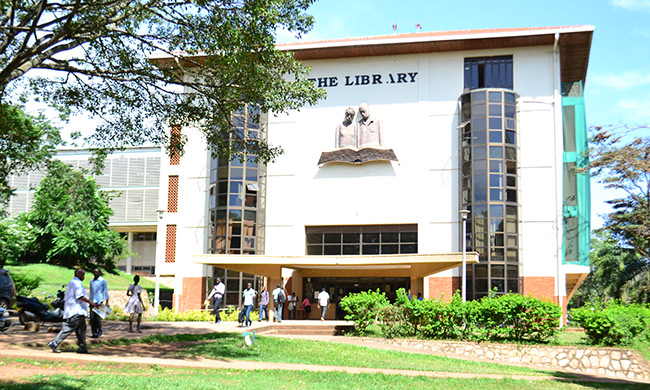
 General1 week ago
General1 week agoDiploma/Degree Holders Admission Lists 2024/25
-
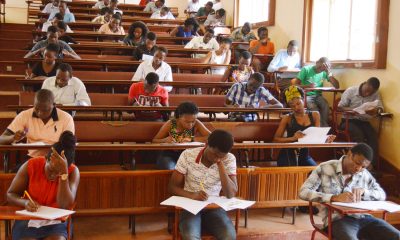
 General1 week ago
General1 week agoAdvert: Mature Age Entry Scheme – Private Sponsorship 2024/2025
-

 General5 days ago
General5 days agoProf. Buyinza Mukadasi Appointed Acting DVC Academic Affairs
-
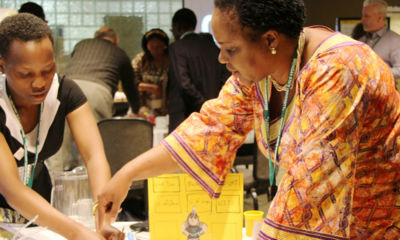
 General2 weeks ago
General2 weeks agoAfrican Futures Research Leadership Program: Cohort 5 – Call for Scholars
-
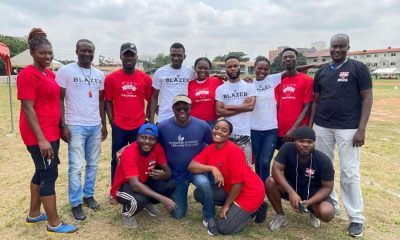
 General2 weeks ago
General2 weeks agoNow Open: CADFP Project Requests
